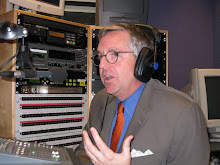It was not the best of days for the new President.
What started as a day where there was support by President Obama and others in the US Senate for suddenly embattled Health and Human Services Secretary (and former US Senator) Tom Daschle, the day ended with Daschle’s withdrawal for consideration for confirmation, as well as the withdrawal of another Presidential appointee with her own tax problems.
Making the day worse, the damage was significant enough for the President having to make the rounds to do individual interviews on national television news programs to apologize for what he called “his decisions” regarding the nomination of Daschle and two other appointees.
Not only did Tom Daschle withdraw as the nominee for Health and Human Services Cabinet Secretary, but Nancy Killefer also withdrew her consideration as the nominee to head President Obama’s newly created Office on Improving Government Performance.
The issues related to tax filing errors by both nominees, but was much more complicated for former Senator Daschle’s consideration as disclosures on the amount of money made representing and working for health care concerns after leaving office created concerns about conflicts of interest. Both withdrawals followed a tough nomination hearing for now Treasury Secretary Timothy Geithner, who also had problems with his personal tax filings.
Ethics in Washington, transparency and changing business as usual, including rules closing the so-called revolving door between lobbyists and government, was a key message for President Obama, that resonated with voters during the 2008 Presidential Campaign.
When Secretary Select Daschle’s tax problems came to light at the end of last week, it appeared that the Senator still had the support of his former colleagues who would be voting to confirm the former Senator’s appointment by the President.
The problem Daschle had, however, was not the issue of fixing back taxes. It was the issue of the old world of doing business in Washington DC. Since leaving office, Tom Daschle had generated considerable income as a strategic counsel for several health care insurance businesses, as well as high speaking fees to discuss the future of national healthcare. As more of this income came to light during the discussion of Daschle’s attempt to fix a problem over failing to disclose as income a gift donated to the former Senator in the way of a paid car and driver, the problem was the perceptions of potential conflicts of interest.
As pointed out in a previous posting of West of the West Wing, one of the earliest orders the President signed was to help close the revolving door between lobbyists entering the administration to influence policy, as well as helping prevent those staff members using their positions to achieve high paid lobbying positions in the immediate future.
There is no question the Obama transition team failed to weigh the impact of these nominees and how they fit into the policy goals and philosophy of the President’s team. The contradiction between what the President did in his declarations on transparency and avoiding Washington’s culture of movement last week and the problems now three of his nominees (yes, the Treasury Secretary made it through but if his nomination was this week, it would not happen), shows the difficulty in trying to achieve real cultural change within national politics in Washington DC
To be fair, this is not anything anyone could achieve in 10-days, 10-weeks or maybe not in 10-years. However, these embarrassments could have been avoided. Daschle was seen as a critical inside player to help drive healthcare reform in Congress and lead the charge in the public realm. Losing the former Senator is a blow, but he is not the only person the President can tap to get this enormous political and policy initiative moving and hopefully to fruition.
While the President took the day on the chin and accepted full responsibility, at least he did not try to live by the old parental contradiction – “Do as I say, not as I do.”
Yes, it was embarrassing, but the President owned his part of this sordid day and he reiterated his commitment to long-range reform and changes to transparency and ethics in government.
The President had his first bad day in the office, not bad considering the immense tasks and issues he has as his team settles in. I am sure it was a day when he might have wished he could go home check on his family and then head out for a quick pint with friends at his local.
Alas, the role of President is a lonely one and the burden of office stays within the confines of 1600 Pennsylvania Avenue in Washington DC.
Wednesday, February 4, 2009
Subscribe to:
Post Comments (Atom)

No comments:
Post a Comment